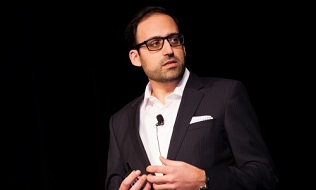

When it comes to cancer treatment, immunotherapy is a game changer with an exciting future ahead, according to Dr. Jeff Rothenstein.
However, the therapy, where a patient’s immune system is used to help their body help itself, is a field that’s difficult to track, said Dr. Jeff Rothenstein, medical oncologist and lung cancer site group leader at R.S. McLaughlin Durham Regional Cancer Centre at Lakeridge Health and adjunct assistant professor in the department of oncology at Queen’s University.
Read: One woman’s journey through the cancer treatment system
“So if you miss a meeting, all of a sudden you miss a whole bunch of new studies that have come out with all new developments that are literally changing every few months. And this makes it even harder for people who aren’t in the field,” he said, during a session at Benefits Canada‘s Cancer Care Summit in Toronto on Feb. 27.
“Regulators, payers, everybody who’s involved in the care of the patient — it’s hard to keep up with the developments. We have a system developed decades ago, and it worked well. And because developments were few and far between, they didn’t happen that quickly.”
Looking at how the industry can work together to get the best treatment to patients, Rothenstein said it starts with more targeted drugs. “We need drugs that are a little bit more focused. We’d have a hundred patients on these drugs, and we’d see one patient respond. And people would look at that and say, ‘Wow, these drugs are terrible drugs, one out of 100 patients. We’re going to spend all this money to try to treat one patient who’s going to respond, and 99 who aren’t.’
Read: A look at best practices for managing cancer in the workplace
“We needed game-changing players to get game-changing drugs and we’re not going to get to that before we understand the disease,” he added, noting immunotherapy is the breakthrough of the decade and is changing the lives of patients.
As for new therapies, Rothenstein said he has conversations with patients every day about how they can receive these treatments through insurers’ clinical trials to fill the gaps that exist in Canada’s health-care system.
“In Canada, we live in a system where there are gaps — gaps until Health Canada approval, gaps from Health Canada approval until payments by provincial governments — and we’ve become adept at trying to fill those gaps . . . with companies who have amazing, compassionate programs, opening clinical trials to try to get access to these drugs.”
Nevertheless, people are still falling through the gaps, said Rothenstein. “It’s really every day . . . well, we could do this, we could change things this way, but we’re not quite there yet. It’s amazing when we can offer gap services.”
Read more coverage of the 2019 Employers Cancer Care Summit.
